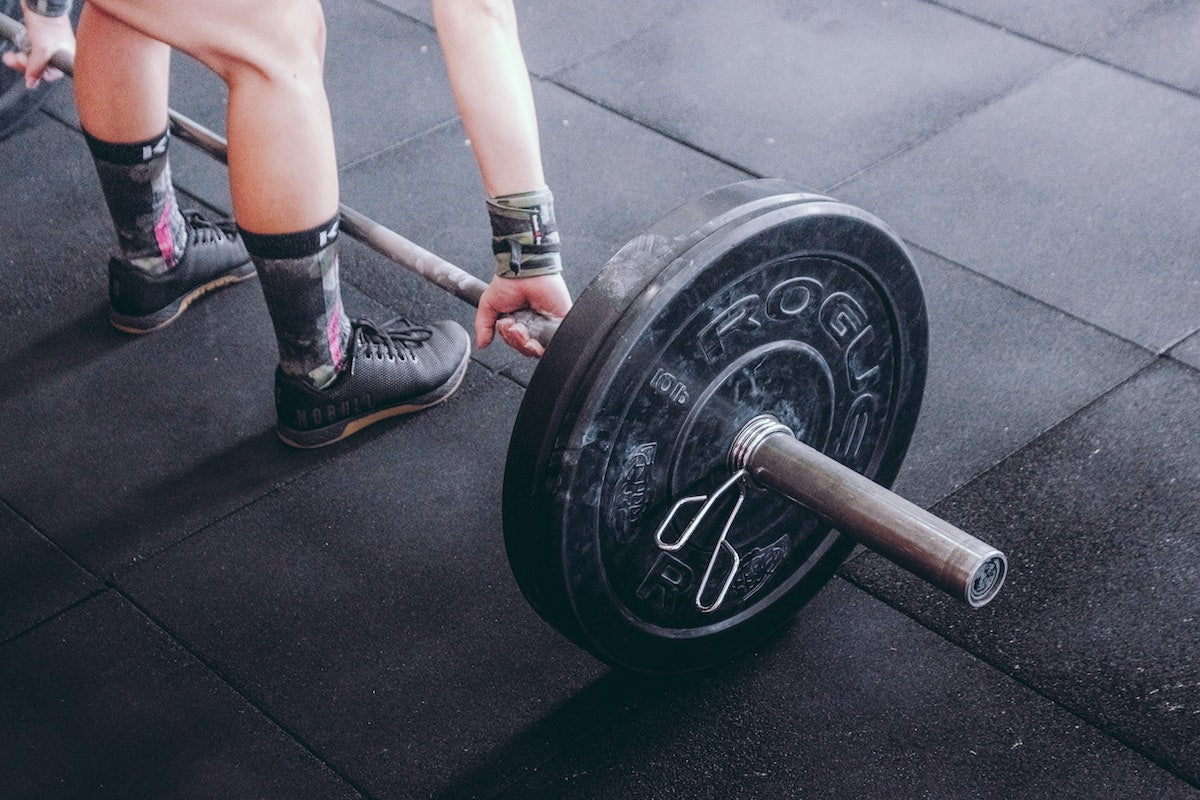BCAAs. You’ve heard of them, because your friend Stacy puts a scoop of her BCAAs in her shaker cup every morning before she works out for more energy. She swears by them, not only because they taste great, but because they help keep her stay lean, recover faster, and she just loves the lemon-lime flavor. And by the looks of Stacy, the BCAAs are definitely working. But what are BCAAs? What do BCAAs do? And do BCAAs really work?
In this article, you will learn
- What Are Branched Chain Amino Acids [BCAAs]?
- How Do Branched Chain Amino Acids [BCAAs] Work?
- What Do Branched Chain Amino Acids [BCAAs] Do?
- What Are The Benefits Of Branched Chain Amino Acids (BCAAs)
- Should You Take BCAAs On Non-Training Days?
- Why Should I Take Branched Chain Amino Acids (BCAAs)?
- When Should I Take BCAAs?
- What's The Recommended Dose Of BCAAs?
- What's The Best BCAA Ratio?
- What Foods Contain The Highest Amounts Of Leucine and BCAAs?
What Are Branched Chain Amino Acids [BCAAs]?
Branched Chain Amino Acids are the building blocks of protein. These building blocks refer to the three essential amino acids Leucine, Isoleucine, and Valine. The human body cannot manufacture essential amino acids, therefore, they must be obtained from food sources in your diet, or through supplementation.
Branched Chain Amino Acids (BCAA) are one of the most popular and effective sports supplements on the market. Research suggests, that BCAAs have a positive impact on muscle protein synthesis, the muscle building process and prevents protein degradation or muscle mass breakdown. If you’re sore after your workout, then BCAAs might be exactly what you’re looking for to speed up your recovery and get you back under the squat rack faster.

What Do BCAAs Do?
Intramuscular Signaling
While the majority of essential amino acids are oxidized within the liver, BCAAs are predominantly oxidized within the skeletal muscle and other peripheral tissues. The anabolic or muscle building effects of high-intensity training and resistance training are controlled through the changes in signal transduction, which control and facilitate muscle protein synthesis (the process of building muscle mass). The signaling networks that control muscle protein synthesis through translation involve the phosphorylation of the mammalian target of rapamycin (mTOR). BCAAs are said to have a definite consequence on this particular process and signaling pathway, therefore creating an anabolic effect on protein metabolism, increasing the rate of protein synthesis and decreasing the rate of protein degradation.
So if you didn't major in Biochemistry what does that mean? It means that if you’re left with a positive balance of protein synthesis by supplementing with BCAAs you’re giving your body the nutrients it needs to help build lean muscle mass. Leucine in particular, is vital in this process of building muscle mass and indirectly activates the p70 s6 Kinase and the eIF4F Complex, which is essential for the anabolic effects of muscle tissue and recovery.
The human body utilizes BCAAs for fuel during your workout, when it depletes glycogen stores. When you run low on stored sources of BCAAs your body cannot adequately repair itself. When you’re training at a high-intensity and you’ve burned through those BCAA stores, your body starts to be catabolic or starts to break down muscle mass for fuel instead. By supplementing with BCAAs you ensure your body is in a positive balance, to help promote muscle growth, repair, and reduce muscle soreness after your workout.
What Are The Benefits Of Branched Chain Amino Acids (BCAAs)?
BCAAs Benefit Increased Muscle Strength
Unlike other essential amino acids, BCAAs have aliphatic side chains, with a branch or (a central carbon atom bound to three or more carbon atoms), distinguishing them molecularly and functionally. BCAAs provide several beneficial roles to the human body and building lean muscle mass since they are the building blocks of protein. According to a research study published in the Journal of Nutrition BCAAs Leucine, Isoleucine, and Valine, particularly Leucine have anabolic effects on protein metabolism by increasing the rate of muscle protein synthesis and decreasing the rate of protein degradation [R] Every time you workout, you produce small tears in your muscle tissue, which then repairs and grows in the process. BCAAs help build muscle mass by repairing those tears.
Therefore, in relation to resistance and high-intensity training, intake of Branched Chain Amino Acids before or during your workout stimulates the rate of muscle protein synthesis and leads to a positive protein balance, (i.e. the rate of protein synthesis is greater than the rate of protein breakdown).
Consequently, if you supplement with BCAAs before or during your workout you'll stimulate the process of protein synthesis to help build lean muscle mass and strength.
The school of Kinesiology at Auburn University in Alabama performed a ten-week randomized double-blind controlled study to examine the effects of BCAA supplementation with trained cyclists on select body composition, performance, and immune health over a 10-week training season. 18 trained cyclists were administered 12g of BCAAs per day or a maltodextrin placebo. The results showed a 19% increase in peak power performance and mean power [R]
RELATED ARTICLE Clinical Study On BCAA Supplementation & Peak Performance
BCAAs Benefit Faster Recovery Times
In a randomized double-blind placebo controlled trial (the gold standard for clinical studies) twelve male participants performed 100 consecutive drop jumps to examine the effects on recovery of BCAA supplementation on markers of exercise induced muscle damage. The results showed that BCAAs taken before and after workout reduced exercise induced muscle damage and accelerated recovery time, on all time variables of 24, 48, 72, and 96 hours post workout [R,R].
It's important to note that the supplement protocol, was based around a 12-day testing period, with a 7-day loading phase at 10g per day. Therefore, it’s recommended to supplement with BCAAs daily to fully optimize muscle recovery.
BCAAs Benefit Body Composition
BCAAs have the greatest benefit on optimizing body composition, by directly decreasing body fat, increasing lean muscle mass, and increasing muscle strength.
In a randomized, double-blind controlled study published in the Journal of the International Society of Sports Nutrition, 36 male athletes were randomly assigned to receive either 14 grams of BCAAs (n = 12), 28 grams of whey protein (n = 12), or 28 grams of carbohydrates from a sports drink (n = 12) while performing an eight-week resistance-training program. The BCAA group experienced a significantly greater gain in body weight, lean mass, increased strength, and decreased body fat as compared to the whey and carbohydrate group [R].
BCAAs Benefit Endurance & Delay Muscle Fatigue
BCAAs also help fight muscle fatigue and promote endurance during high intensity training or resistance exercise [R]. Several factors are known to cause fatigue during intense bouts of exercise. Changes in the brain 5-hydroxytryptamine (5-HT) level is one mechanism that has been suggested as a potential factor to cause fatigue. During exercise, tryptophan crosses the blood-brain barrier, where it is then converted to 5-hydroxytryptamine (5-HT), or what’s better known as serotonin. Having higher serotonin levels during exercise signals the brain that your body is fatigued, which translates into less muscular endurance and strength.
Transport of 5-HT is influenced by the available amount of tryptophan and other available amino acids including BCAAs, which are transported along the same carrier pathway. While BCAAs and tryptophan compete to get across the blood-brain barrier, BCAAs typically win the battle every time. That means that by supplementing with BCAAs before or during your workout, less tryptophan crosses the blood-brain barrier, meaning less tryptophan gets converted into serotonin, resulting in greater muscular endurance and less fatigue [R].
Since change in 5-HT is only one mechanism of muscle fatigue, pairing BCAAs with Beta-Alanine CarnoSyn, can help dramatically improve endurance and fight muscle fatigue, since beta-alanine buffers lactic acid threshold.
In Summary, BCAA Benefits Include
- Improved Muscle Recovery
- Reduced Muscle Mass Breakdown
- Rebuilding Lean Muscle Mass
- Reduced Exercise-Induced Muscle Soreness
- Delays Muscle Fatigue
- Increase Energy Levels
- Improve Endurance
- Improves Body Composition
Why Should I Take Branched Chain Amino Acids (BCAAs)?

If you're serious about improving your athletic performance or reaching your health and fitness goals, then you should absolutely supplement with BCAAs. During exercise or high-intensity training, protein synthesis decreases as a result of the body utilizing amino acids for energy, subsequently increasing the rate of protein degradation and BCAA oxidation. Therefore, in order to take advantage of the countless hours you spend in the gym, box, or at the squat rack in your garage, it’s important to have a positive protein balance in order to build the muscle mass and strength you’ve been working so hard for.
If you do not receive the adequate amount of Leucine through your daily diet from natural protein sources or through supplementation the rate at which you break down muscle will be greater than the rate of protein synthesis resulting in a loss of muscle mass. In order to obtain an anabolic state (muscle-building state) during your workout, it is vital to obtain the proper and adequate amounts of BCAAs [R]
When Should I Take BCAAs?
Branched chain amino acids should be taken before or during your workout to fuel performance. In addition to performance benefits, supplementing with BCAAs during your workout can also aid help reduce delayed onset muscle soreness (DOMS) [R].On training days you should be taking BCAAs, before, during, and after your workouts or WOD. You can also take BCAAs daily on non-training days, to help with recovery and maintaining a positive protein balance.
What’s The Recommended Dose?
To achieve maximum performance benefits the majority of clinical studies suggest a daily intake of 6-10g twice per day, pre and post workout. Duration is also critical to increase overall athletic performance.
Should You Take BCAAs On Non-Training Days?
Duration matters, meaning that the longer you supplement with BCAAs the faster you’ll recover and help the muscle rebuilding process. Not to mention Swolverine’s lemon-lime BCAA is outrageously delicious. If you are not consuming an adequate level of protein, then we recommend taking BCAAs between meals and throughout the day on non-training days. Even if you’re supplementing with protein, it’s still a good idea to use BCAAs to help improve your performance.
What’s The Best BCAA Ratio?
BCAAs are composed of L-Leucine, Isoleucine, and Valine and the ratio of BCAAs conveys how many parts of each amino acid create a product.
For example, Swolverine’s BCAA contains
2,000 mg L-Leucine
1,000 mg L-Isoleucine
1,000 mg L-Valine
which creates a 2:1:1 ratio.
The reason why most BCAA supplements contain a greater amount of L-Leucine is that it has a higher oxidation rate than isoleucine and valine. Leucine is also the most critical branched-chain amino acid in the muscle building process and ignites protein synthesis [R]. But, before you go Amazon shopping for a 4:1:1 BCAA, keep reading friend.
The 2:1:1 BCAA ratio is always the best. We know that Leucine has the greatest anabolic effects on protein synthesis, therefore having a larger ration of leucine, to isoleucine and valine should increase muscle strength and lean muscle mass right? Not necessarily. Studies show that taking a 2:1:1 ratio of BCAAs stimulates protein synthesis even better than taking leucine in higher ratios or leucine alone. Therefore a 2:1:1 ratio will be better to activate protein synthesis than a 4:1:1 or 10:1:1 ratio.
In a randomized, double-blind, placebo-controlled study conducted at Baylor University, 30 were administered BCAA, Leucine, or placebo. The supplements were consumed in three equal doses pre, immediately before resistance training, and post-workout. The results indicated that both leucine and BCAA supplementation led to greater levels of phosphorylated 4E-BP1 and cell signaling of the mTOR pathway, a serine/threonine kinase that stimulates protein synthesis through amino acid activation. These findings suggest that the other two BCAAs [isoleucine and valine] may contribute to greater activation rates than leucine alone [R]. Furthermore, the study concluded that supplementing BCAAs had greater effects on mTOR than taking greater amounts of leucine alone.
What Foods Contain The Highest Amounts Of Leucine and BCAAs?
Retaining an adequate amount of essential amino acids, and primarily the Branched Chain Amino Acid, Leucine must be mainly obtained from your diet. Lean meat and poultry, generally contain rich amounts of Leucine.
- Parmesan Cheese 4g per 3.5oz
- Lean turkey – 3.5g
- Beef Steak – 2.9g per 3.5oz
- Chicken Breast – 2.9g per 3.5oz
- Lean Pork – 2.5g per 3.5oz
- Pumpkin Seeds – 2.3g per 3.5oz
- Soy Beans (edamame) – 2.3g per 3.5oz
- Tuna – 2.3g per 3.5oz
- Salmon – 2.5g per 5oz
- Almonds – 1.4g per 3.5oz
Dairy products such as Milk, Greek Yogurt, and cottage cheese are high in protein, therefore providing another source of Leucine in your diet. Therefore, there are many organic whole foods, that you can find an adequate amount of Leucine, in order to help maintain an anabolic state during and after training. For all of you vegans, Edamame is loaded with Leucine. Plus, they're delicious!
Do BCAAs Really Work? Conclusion
BCAAs really work! When you’re deciding on what supplements to take, it ultimately depends on what your goals are. If you wake up every morning and get after it in the gym, box, or your all women’s workout group classes, then yes, BCAAs would be a great addition to your routine to help promote muscle growth and reduce exercise-induced soreness. Whole food sources and organic proteins will provide the adequate nutrients and Leucine levels you need for optimal protein synthesis and recovery, in addition to taking a BCAA supplement.
If your goals are to be more competitive and you’re trying to increase and build lean muscle mass while reducing body fat, I would also definitely recommend supplementing with BCAAs and adding them to your daily regimen. High-intensity training, such as CrossFit is catabolic to the muscle tissue and not only burns body fat but also can burn muscle if resumed for too long. Consequently, BCAAs are a critical component to rebuild, repair and recover from high-intensity and resistance training. Just remember the frequency, dose, and duration matter. Supplementing with 6-10g of BCAAs per day will ensure faster recovery and better results.
Looking for an amazing BCAA with the perfect 2:1:1 ratio?
SWOLVERINE IS AN ENDURANCE ATHLETE AND ACTIVE LIFESTYLE BRAND. MADE FOR THE ELITE ATHLETE, AND THE STRONG-WILLED OUR PRODUCTS WERE DESIGNED TO FUEL YOUR ATHLETIC PERFORMANCE. WE PERFORM WHEN YOU PERFORM.
We believe that everyone can optimize not only their athletic performance but their human potential. The way we believe we can optimize performance is through transparency, clinically effective doses, and clinically proven ingredients with evidence-based outcomes. We provide the nutrients you need to power your active lifestyle.
References
Blomstrand*†4, Eva, Jörgen Eliasson*†, and And Håkan K. R. Karlsson**. "Branched-Chain Amino Acids Activate Key Enzymes in Protein Synthesis after Physical Exercise." The Journal Of Nutrition(2006): n. pag. Web.
Kephart WC, Wachs TD, Mac Thompson, Brooks Mobley, Fox CD, McDonald JR, Ferguson BS, Young KC, Nie B, Martin JS, Pascoe DD, Arnold RD, Moon JR, Roberts MD, “Ten weeks of branched-chain amino acid supplementation improves select performance and immunological variables in trained cyclists.” Journal of Amino Acids (2016)
Kaido, Toshimi. "Branched Chain Amino Acids and Organ Transplantation." Branched Chain Amino Acids in Clinical Nutrition(2014): 181-90. Web
Howatson G, Hoad M, Goodall S, Tallent J, Bell PG, French DN. Exercise-induced muscle damage is reduced in resistance-trained males by branched-chain amino acids: a randomized, double-blind, placebo-controlled study. J Int Soc Sports Nutr. 2012;9:20.
Fouré, Alexandre, and David Bendahan. “Is Branched-Chain Amino Acids Supplementation an Efficient Nutritional Strategy to Alleviate Skeletal Muscle Damage? A Systematic Review.” Nutrients vol. 9,10 1047. 21 Sep. 2017, doi:10.3390/nu9101047













